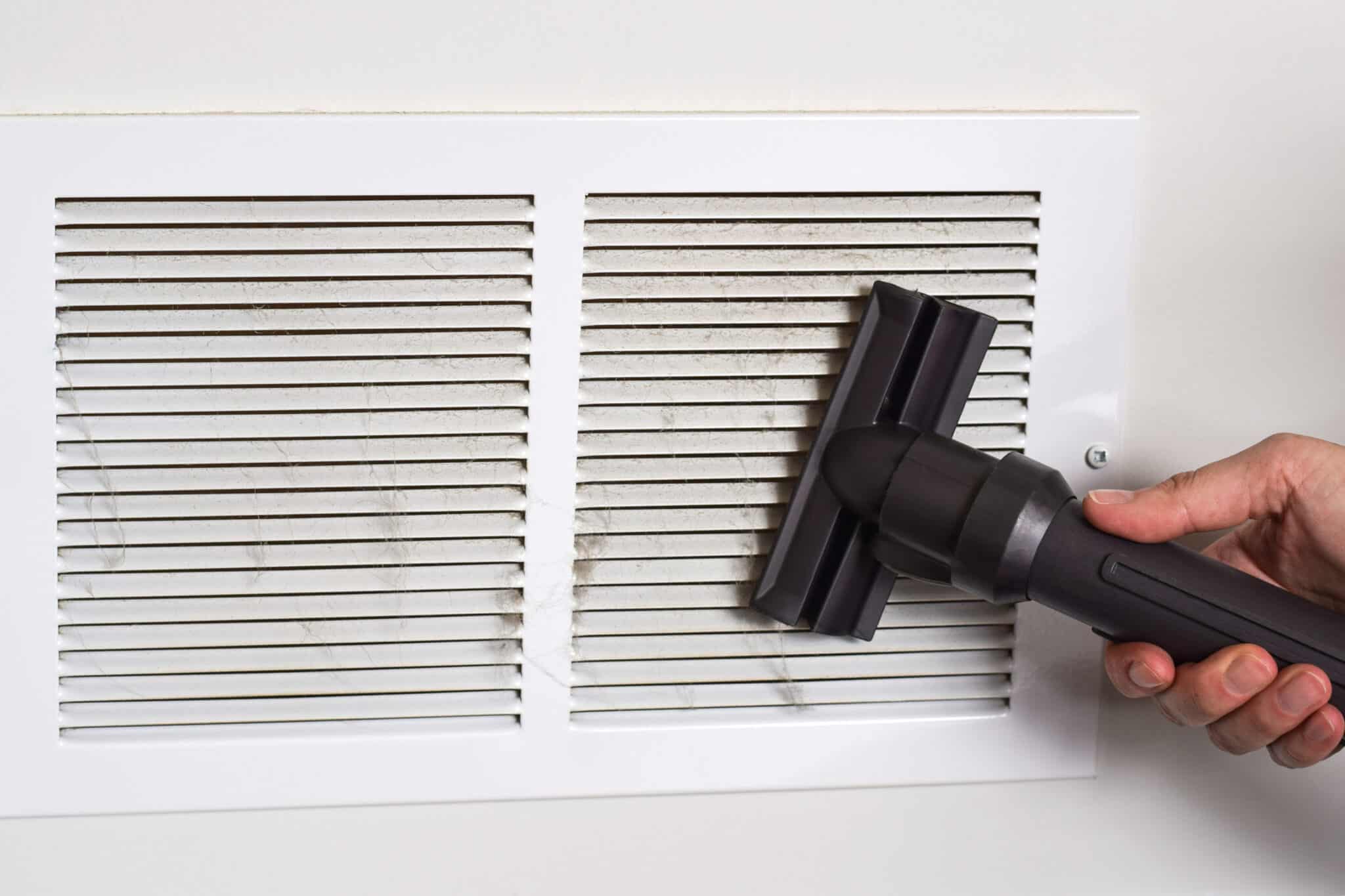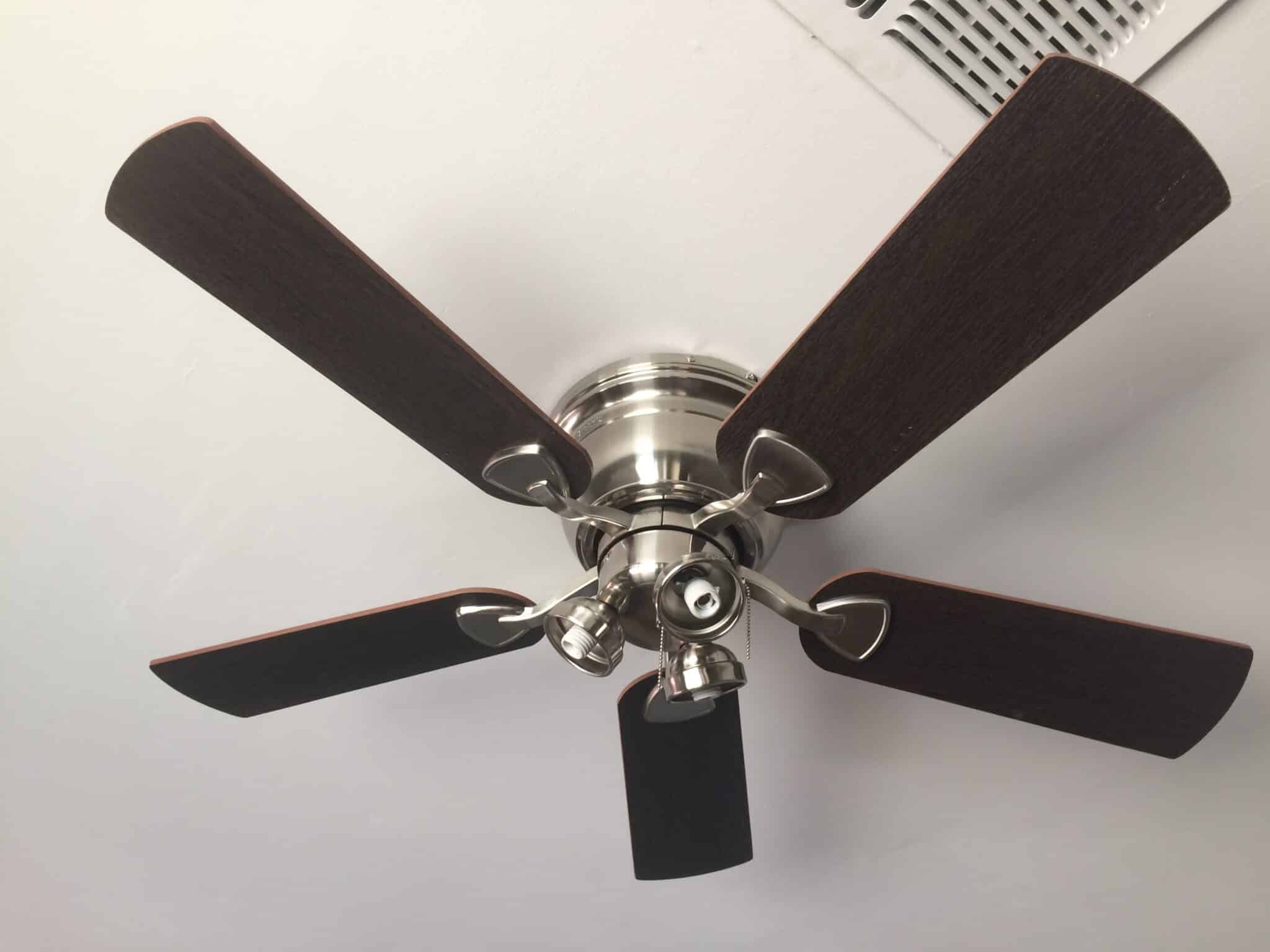
How to Optimize Your HVAC Air Circulation
Improving HVAC air circulation in your home is essential for maintaining a comfortable and healthy living environment. Whether you reside in the bustling city of Plano, TX, or the quieter surroundings of Briar, TX, the quality of your indoor air can significantly impact your daily life. By optimizing your HVAC system’s air circulation, you can enjoy fresher air, reduced allergens, and a more evenly heated or cooled space. This guide aims to provide you with practical techniques to enhance the airflow and efficiency of your HVAC system.
Understanding the basics of HVAC air circulation is the first step towards a more comfortable home. It’s not just about the temperature on your thermostat, it’s about how air moves through your space. Effective circulation ensures that every room in your house reaches your desired comfort level, eliminating hot or cold spots that can be a nuisance, especially during extreme weather conditions.
Many homeowners in areas like Plano and Briar, TX, often overlook the importance of regular maintenance and strategic improvements to their HVAC systems. However, simple adjustments and routine checks can lead to significant improvements in air circulation. These enhancements not only contribute to a more comfortable living environment but also to the overall health and well-being of your household.
As we delve deeper into the techniques to optimize HVAC air circulation, remember that each home is unique. What works for one may not work for another. Therefore, it’s crucial to consider the specific needs of your home and consult with professionals when necessary. With the right approach, you can achieve optimal air circulation, leading to improved air quality and comfort in your home.
Understanding HVAC Air Circulation Basics
To truly enhance HVAC air circulation, one must first grasp how an HVAC system operates. Essentially, it pulls in air from your home, heats or cools it, and then redistributes it evenly throughout the space. This process is crucial for maintaining consistent temperatures and ensuring that every corner of your home feels comfortable. Regular checks on this flow can prevent common issues, such as uneven heating or cooling.
One effective method to optimize circulation is to keep vents clear of obstructions. Furniture, curtains, or rugs that block vents can restrict airflow, leading to inefficient system performance. By arranging your space thoughtfully, ensuring vents are unobstructed, you allow air to circulate freely. This simple adjustment can make a significant difference in how evenly your home is heated or cooled.
Another key aspect involves the maintenance of your HVAC system. Replacing or cleaning air filters regularly can dramatically improve air quality and circulation. A clogged filter restricts airflow, forcing your system to work harder, which can reduce its efficiency and lifespan. Homeowners in Plano, TX, and beyond can attest to the benefits of routine maintenance in achieving optimal air circulation.
Lastly, consider the role of ceiling fans in enhancing HVAC air circulation. Fans can help distribute air more evenly throughout your rooms, making your heating and cooling systems more effective. By using fans in conjunction with your HVAC system, you can create a more comfortable environment in your home, regardless of the season. This synergy between fans and HVAC systems is a smart strategy for homeowners in Briar, TX, looking to improve their air quality and comfort.
The Importance of Regular HVAC Maintenance
Regular HVAC maintenance is crucial for ensuring optimal HVAC air circulation in your home. It helps identify and fix any issues that might impede airflow, such as leaks or blockages in the ductwork. Professionals can spot problems that aren’t immediately obvious to homeowners. By catching these early, you can avoid bigger issues down the line, keeping your air flowing smoothly and efficiently.
Scheduling professional inspections at least once a year is a smart move for any homeowner. During these check-ups, technicians can thoroughly assess your system’s condition, clean components that are difficult to reach, and make necessary adjustments. This proactive approach can significantly extend the life of your HVAC system, ensuring it runs effectively to maintain comfortable temperatures in every room.
Implementing a regular cleaning routine for your HVAC system also plays a vital role in maintaining good air circulation. Dust and debris can accumulate over time, hindering performance and air quality. By keeping the system clean, you ensure it operates at peak efficiency, providing your home with fresh, clean air. This is especially important for residents in Plano, TX, where seasonal changes can bring about a variety of airborne particles.
Lastly, don’t overlook the importance of duct maintenance. Ducts are the pathways through which air travels throughout your home. Any leaks, holes, or blockages can drastically affect HVAC air circulation. Having them inspected and cleaned regularly ensures that air can move freely, reaching every corner of your home. This is particularly beneficial for households in Briar, TX, where efficient heating and cooling can make a significant difference in home comfort.
Enhancing HVAC Air Circulation with Strategic Vent Placement
Strategic vent placement is a key factor in optimizing HVAC air circulation in your home. By positioning vents in areas that allow for maximum airflow, you can enhance the overall efficiency of your heating and cooling system. This means avoiding placing furniture directly in front of or on top of vents. Such careful placement ensures that air can flow freely, maintaining a consistent temperature throughout your space.
Incorporating additional return vents can also improve air circulation significantly. These vents help by pulling in the air that needs to be heated or cooled, making the entire process more efficient. Homes in Plano, TX, can benefit from this approach, especially during seasons of extreme temperatures. By facilitating a smoother flow of air, your HVAC system can operate more effectively.
Adjusting vent covers to direct airflow can also make a big difference in how air moves through your home. This simple tweak allows you to guide air to where it’s needed most, eliminating hot or cold spots. For residents in Briar, TX, this means achieving a more comfortable living environment without having to adjust the thermostat constantly.
Finally, ensuring that your home’s layout supports good HVAC air circulation is crucial. Open spaces allow air to move freely, while crowded rooms can restrict airflow. By considering the layout of your furniture and the placement of vents, you can create an environment that promotes efficient air circulation. This approach not only improves comfort but also enhances the air quality in your home.

Tips for Reducing Airflow Obstructions at Home
Ensuring your home is free from airflow obstructions is crucial for maintaining efficient HVAC air circulation. Simple measures like regularly vacuuming vents can prevent dust and debris from blocking air paths. This not only helps in keeping the air in your home clean but also supports your system in functioning smoothly. For residents in Plano, TX, this practice can make a significant difference in air quality, especially during the allergy season.
Another effective strategy is to minimize clutter around your indoor air intakes. Books, toys, or furniture can restrict the flow of air into your HVAC system, causing it to work harder. By keeping these areas clear, you ensure that your system can easily pull in air to heat or cool your home. This is particularly important in smaller homes in Briar, TX, where space might be limited.
Installing air purifiers in key areas can also aid in reducing potential obstructions to airflow by removing particulates from the air before they reach your HVAC system. This can be especially beneficial in homes with pets or in areas prone to dust. Air purifiers help in maintaining cleaner air, which in turn, supports optimal HVAC air circulation throughout your home.
Lastly, reevaluating your home’s layout can significantly impact air circulation. Moving furniture away from vents and considering the placement of large items can enhance airflow. This ensures that heated or cooled air can travel freely, maintaining a comfortable temperature in every room. Such adjustments are straightforward yet effective in promoting better HVAC air circulation and overall home comfort.
Selecting the Right HVAC Filters for Improved Air Circulation
Selecting the right HVAC filters plays a crucial role in enhancing HVAC air circulation in your home. High-quality filters trap dust, allergens, and other airborne particles more effectively, preventing them from circulating through your space. This not only improves the air quality but also ensures your HVAC system operates efficiently. For residents in Plano, TX, choosing filters with the appropriate MERV rating can make a significant difference in maintaining a clean and comfortable home environment.
Understanding the different types of HVAC filters is essential for making an informed decision. Fiberglass filters, for example, are a common choice due to their affordability and basic protection against large particles. However, pleated filters offer superior filtration by capturing smaller particles, which is beneficial for homes in Briar, TX, where air quality can significantly impact comfort and health. It’s important to consider your specific needs and consult with professionals to find the best option for your system.
Regularly replacing or cleaning your HVAC filters is key to sustaining optimal air circulation. A clogged filter restricts airflow, forcing your system to work harder and reducing its overall efficiency. Homeowners should check their filters every month, especially during high usage periods, to ensure they are clean and functional. This simple maintenance task can greatly enhance the performance of your HVAC system, providing consistent and clean air flow throughout your home.
Lastly, investing in higher quality filters can have long-term benefits for your HVAC system and your home’s air quality. Advanced filters, such as HEPA filters, can capture a higher percentage of airborne particles, including viruses and bacteria. While these filters are more of an investment, the improvement in HVAC air circulation and the positive impact on health make them a worthwhile consideration for any homeowner looking to optimize their system’s performance.

The Role of Ceiling Fans in Boosting HVAC Air Circulation
Ceiling fans play a crucial role in enhancing HVAC air circulation, complementing your system’s efforts to distribute air throughout your home. By circulating the air that your HVAC system heats or cools, ceiling fans can significantly improve the comfort level in each room. This is particularly beneficial during the warmer months in Plano, TX, where a ceiling fan can help distribute cool air more evenly, reducing the need for your HVAC system to work overtime. Homeowners can enjoy a more comfortable environment while potentially lowering their energy usage.
In cooler seasons, adjusting the direction of your ceiling fan can also aid in optimizing HVAC air circulation. By setting the blades to rotate clockwise, the fan pulls cooler air up and pushes warm air down, helping to maintain a warm and comfortable atmosphere. This method is especially effective in homes in Briar, TX, where it can get quite chilly during the winter months. Such a simple adjustment ensures that heat is distributed more evenly, enhancing the efficiency of your heating system.
Integrating ceiling fans into rooms with high ceilings can also make a significant difference in air circulation. High ceilings often mean that heated or cooled air can become trapped near the ceiling, away from where it’s needed. By installing ceiling fans, residents can push this air back down into the living space, ensuring that the room temperature remains consistent. This strategy not only improves comfort but also assists in maintaining optimal HVAC air circulation throughout the home.
Lastly, the strategic placement of ceiling fans can complement your HVAC system’s air circulation efforts. Placing fans in areas where people spend the most time, like living rooms or bedrooms, can enhance the effectiveness of your HVAC system. This targeted approach ensures that the benefits of improved air circulation are felt where they are most needed, contributing to a healthier and more comfortable living environment for homeowners.
Smart Thermostats: A Tool for Optimizing Air Circulation
Smart thermostats have revolutionized the way we manage HVAC air circulation in our homes. By learning your schedule and preferences, they adjust your heating and cooling systems automatically. This ensures optimal comfort without manual adjustments, enhancing the air quality and circulation efficiently. In Plano, TX, residents can experience a noticeable difference in their home’s comfort levels, thanks to this intelligent technology.
With the ability to control your HVAC system remotely, smart thermostats offer unparalleled convenience. Whether you’re at work or on vacation, adjusting your home’s temperature is just a tap away. This not only improves HVAC air circulation but also helps maintain a consistent environment. Homeowners in Briar, TX, appreciate the ease with which they can manage their indoor climate, ensuring their space is always welcoming.
Another advantage of smart thermostats is their ability to provide detailed reports on your energy usage. By understanding your heating and cooling patterns, you can make informed adjustments to improve efficiency. This insight allows for better HVAC air circulation, as systems can be fine-tuned to eliminate wasteful practices. As a result, residents enjoy a more comfortable home atmosphere while contributing to environmental conservation.
Lastly, integrating smart thermostats with other smart home devices can further optimize HVAC air circulation. By working in tandem with devices like smart vents, these thermostats can direct airflow to where it’s needed most. This targeted approach ensures that every room in your home achieves the desired comfort level, making smart thermostats a key player in modern HVAC management.
Professional HVAC Assessments and When to Consider Them
Even with the best efforts to maintain and optimize HVAC air circulation, there comes a time when professional assessments are necessary. These evaluations can uncover hidden issues that homeowners in Plano, TX, might not detect. Experts use specialized tools and their vast experience to analyze the system’s performance. They can identify inefficiencies or problems that restrict airflow and compromise air quality.
Scheduling a professional inspection is advisable when you notice persistent issues with temperature consistency or air quality. Residents in Briar, TX, might observe that despite their best efforts, some rooms remain too warm or too cool. This is a clear sign that your HVAC system might be struggling to distribute air effectively. A professional can assess the situation and recommend solutions to improve circulation.
Another scenario that warrants a professional HVAC assessment is after significant home renovations. Changes in your home’s layout can affect HVAC air circulation. New walls or expanded spaces can alter the flow of air, making previous setups less effective. Experts can provide advice on adjusting your system to accommodate these changes, ensuring efficient air distribution.
Finally, if your system is aging, a thorough inspection can help decide on the next steps. Older systems might not circulate air as efficiently as newer models. A professional can evaluate whether maintenance can improve performance or if it’s time to consider an upgrade. This assessment ensures that your home in either Plano or Briar, TX, maintains optimal comfort and air quality.
Frequently Asked Questions
What causes poor HVAC air circulation?
Several factors can lead to poor HVAC air circulation in your home. Blocked vents or dirty filters often restrict airflow, making systems work harder. Similarly, leaks in ductwork can significantly reduce the efficiency of air distribution. Lastly, an incorrectly sized HVAC system struggles to maintain optimal air movement, impacting overall comfort and air quality.
How often should filters be changed?
Changing your filters regularly is crucial for maintaining good HVAC air circulation. Experts recommend replacing them every three months. However, homes with pets or high dust levels might need more frequent changes. This simple step ensures your system runs efficiently, keeping air quality high and energy use low.
How does HVAC air circulation impact energy bills?
Good HVAC air circulation keeps your energy bills in check. When air flows smoothly, your system doesn’t have to work as hard. This means less energy is used, leading to lower bills. Properly maintaining your HVAC system ensures efficient operation and cost-effective home comfort.
Can ceiling fans improve HVAC air circulation?
Yes, ceiling fans can significantly enhance HVAC air circulation in your home. By pushing air around, they help distribute both cool and warm air more evenly throughout rooms. This action allows your HVAC system to operate more efficiently, maintaining a comfortable temperature with less effort. Plus, using fans can assist in keeping the air fresh and reducing hot or cold spots in various areas.
What are common signs of bad HVAC air circulation?
If you notice uneven temperatures in different rooms, it could signal poor HVAC air circulation. Dust buildup around vents and slow airflow from registers also point to issues. Strange noises from your system suggest blockages affecting air movement. Lastly, an increase in allergy symptoms may indicate air quality problems due to inadequate circulation.







